Between 1946 and 1991 the United States, the Soviet Union, and their allies were locked in a long, tense conflict known as the Cold War. Though the parties were technically at peace, the period was characterized by an aggressive arms race, proxy wars, and ideological bids for world dominance.
- National Geographic
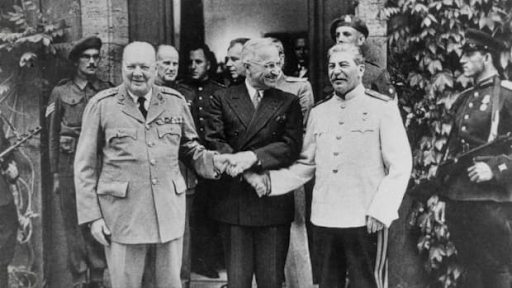
Churchill, Truman, and Stalin at the Potsdam Conference [Credit: Bill of Rights Institute]
Economic Diplomacy: Stopping the Spread of Communism
With the Truman Doctrine, President Harry S. Truman established that the United States would provide political, military, and economic assistance to all democratic nations under threat from external or internal authoritarian forces.
- Office of the Historian
Together with the Marshall Plan in Europe, the Truman Doctrine made clear the U.S. would counter the spread of Communism.
A Look Back: The Monroe Doctrine
Although the Truman Doctrine was much more recent, the 1823 Monroe Doctrine became relevant as it stated that the United States had the right to intervene in Latin American affairs. Nearly a century later, the U.S. would tactically use this doctrine to justify its involvement in Operation Condor.
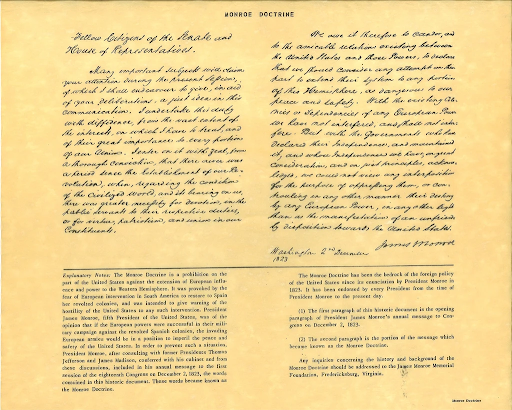
The Monroe Doctrine [Credit: Library of Congress]
With the existing colonies or dependencies of any European power we have not interfered and shall not interfere. But with the Governments who have declared their independence and maintain it, and whose independence we have, on great consideration and on just principles, acknowledged, we could not view any interposition for the purpose of oppressing them, or controlling in any other manner their destiny, by any European power in any other light than as the manifestation of an unfriendly disposition toward the United States. (15-16)...
- The Monroe Doctrine, 1823
Testing the Monroe Doctrine: The Bay of Pigs Invasion
On January 1, 1959, a young Cuban nationalist named Fidel Castro drove his guerilla army into Havana and overthrew General Fulgencio Batista (1901-1973), the nation’s American-backed president. For the next two years, officials at the U.S. State Department and the CIA attempted to remove Castro.
- History.com
The U.S. was unable to eliminate Castro, so it launched the bay of pigs invasion. Essentially, Americans would send Cuban exiles into Cuba to try to take over. While the Cuban exiles did want revenge, the U.S. played a huge role in the invasion. The invasion failed spectacularly because Castro had many more soldiers and weapons, and the U.S. would look at this as a failure forever.
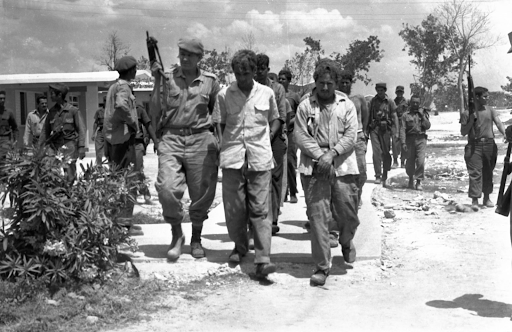
Bay of Pigs Invasion [Credit: Britannica]
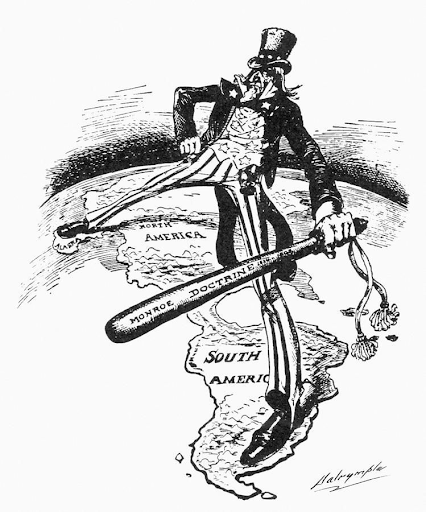
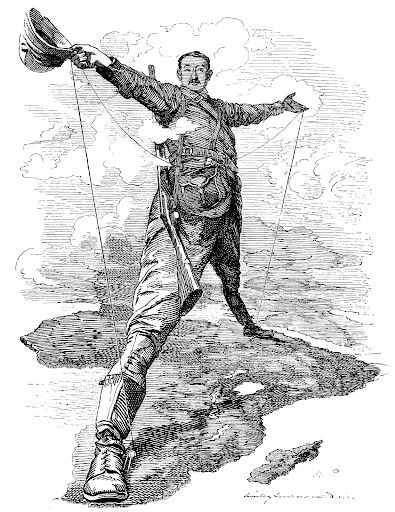
(Left) Political cartoon of Uncle Sam
using the Monroe Doctrine to justify intervening in Latin America [Credit: Public Broadcasting Service (PBS)]
(Right)
Earlier political cartoon of Cecil Rhodes
representing imperialism of the British Empire in Africa [Credit: PBS]